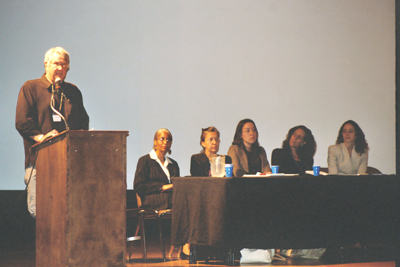Association of Qualitative Inquiry
The 1st Global Congress for Qualitative Health Research 2011' will be held at Ewha Women's University, Seoul, Korea, on June 23-25th 2011. Information is on the website: http://www.gcqhr.com
IAQINewsletters available online
IAQI Partnership with Sage Publications, Members Get 25% Discount.
The Third International Congress of Qualitative Inquiry was held at the the University of Illinois, May 2-5. More than 900 people from more than 55 nations have registered for the Congress. There were 20 preconference workshops. More than 800 papers were presented and performed in more than 180 sessions.
The theme of the Congress, building on Jan Morse, is "Qualitative Inquiry and the Politics of Evidence." Participants will explore the politics of evidence and truth and what these terms mean for qualitative inquiry in this new century. If we as qualitative researchers do not define these terms for ourselves, someone else will.
Questions to be considered include: In qualitative inquiry, What is truth? What is evidence? How is evidence evaluated? Can evidence be manipulated? " How can qualitative research inform the policy-making process? How is qualitative evidence represented, discounted, or judged to be unacceptable? What is a fact? What is true, or false, or evidence is determined by socially defined criteria. Different discourses--law, medicine, history, cultural, or performance studies--- define qualitative evidence differently.
Presenters at the 2007 Congress take up alternative conceptions of research, ethics and science. They entertain new ways of decolonizing traditional methodologies as they are used in indigenous communities. They trouble performative, feminist, indigenous, queer, democratic and participatory forms of critical ethical inquiry. The 2007 Congress examines how these new forms of inquiry advance the goals of social justice and progressive politics in this new century. The Third International Congress offers us an opportunity to share our experiences, problems and hopes concerning the conduct of critical qualitative inquiry in this time of global uncertainty.
The International Association of Qualitative Inquiry (IAQI) was launched at the First Congress. A year later this new association has a newsletter and more than 1,000 members. Thank you for coming and being part of this truly international project.
More information on our Congress, including particulars related to the program, can be found online here.
